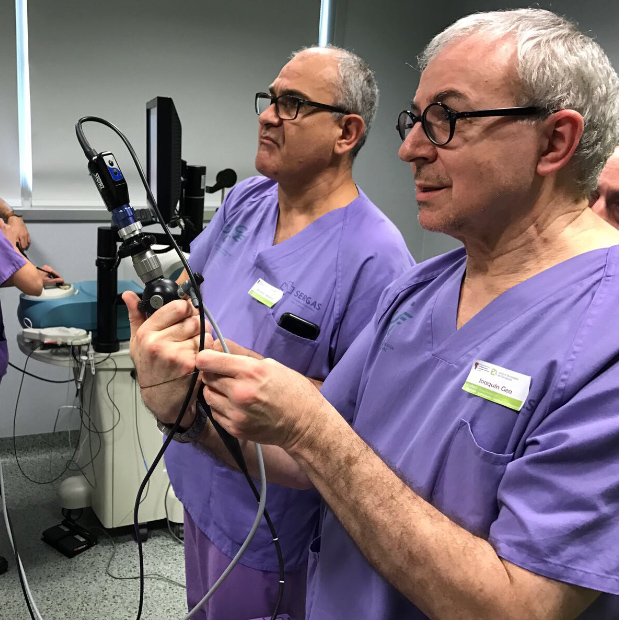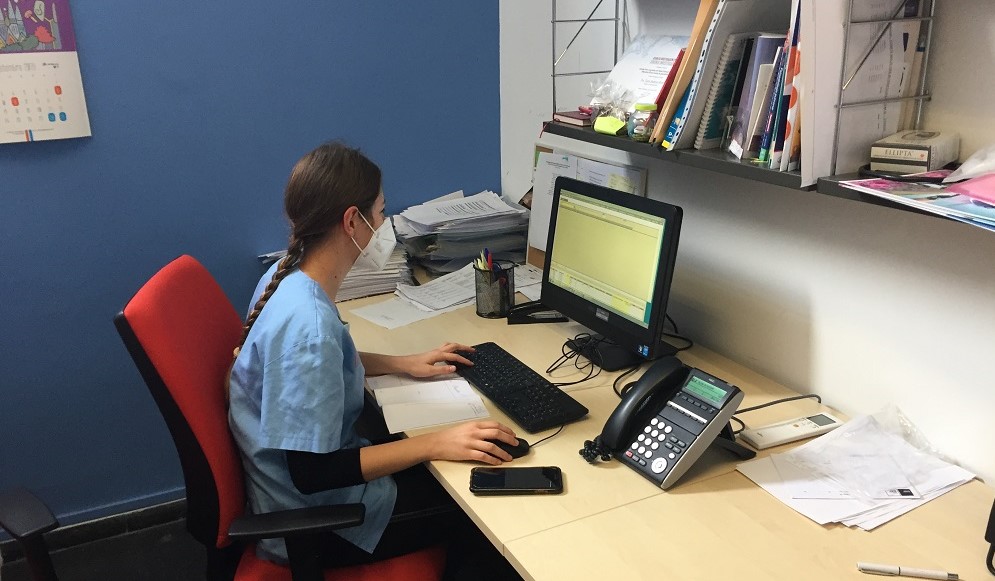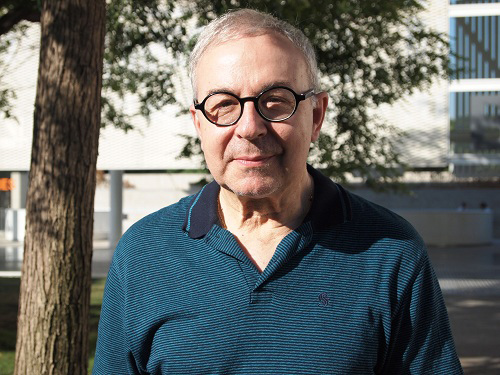Profiles
5. Profiles
“What concerns us is that the virus is highly contagious at the beginning when symptoms are not yet visible”
“There is a group of students who are fully involved in giving both healthcare and social support during this period, they have reaaly shown their commitment: they deserve our full recognition”
Name and surnames: Joaquim Gea Guiral
Place and year of birth: Barcelona, 1956
Position: dean of the Faculty of Health and Life Sciences at UPF and head of the Pneumology Department at Hospital del Mar
Training: holds a degree in Medicine from the University of Barcelona (1979) and a PhD from the same university (1989). Specialist in Internal Medicine (1982) and Pneumology (1987)
Throughout the health crisis triggered by the SARS-CoV-2 virus, which causes the disease known as COVID-19, Quim Gea has played a key role as dean of the Faculty of Health and Life Sciences at UPF and head of the Pneumology Department at Hospital del Mar. He also coordinates the Myogenesis, Inflammation and Muscle Function Research Group at the Hospital del Mar Medical Research Institute (IMIM), where his research is focused on the respiratory system and muscles, especially in chronic obstructive pulmonary disease (COPD). He is also full professor of Physiology in the Department of Experimental and Life Sciences (DCEXS) at UPF, and president of the research association, the Barcelona Respiratory Network (BRN).
We spoke to him to find out more about his standpoint on how this situation has affected both teaching at the University and organising assistance for the hospital and in biomedical research.
What is the difference between SARS-CoV-2 and other coronavirus?
Firstly, this coronavirus, although not especially aggressive in all patients, just in a small proportion, is much more contagious than others. The problem is that because so much of the population has been infected, the group suffering from the severe symptoms of the disease is relatively big in terms of overall numbers and, therefore, there are a significant number of deaths. The virus is transmitted very easily and, according to the latest published articles, we know that it is highly contagious at the beginning: when the person has yet to show any symptoms they have a high capacity to transmit it. So, before confinement, in Spain, in this early phase, there were probably a very high number of infections.
For some reason, some are affected more seriously than others, and we have no way of knowing who that will be. We are desperately looking in every way possible: biomarkers, different clinical onsets, genetic studies to see if some profiles are more susceptible than others
The other very unusual characteristic is that it starts, in almost all cases, with sickness that seems mild, with very moderate symptoms. Many patients make a good recovery from the disease; but for others it leads to very serious illness. We know the likelihood of this happening is higher in people with existing medical conditions; but it can also have serious consequences for 30, 40 and 50-year-olds. For some reason, some are affected more seriously than others, and we have no way of knowing who that will be. We are desperately looking in every way possible: biomarkers, different clinical onsets, genetic studies to see if some profiles are more susceptible than others. We are also studying the characteristics of the cough, which may give us some clue… There are all kinds of studies, but we still don’t have any answers.




